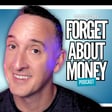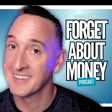
🏖️ Fun Bucket 101: How to Spend Guilt-Free in Retirement! | Mark Trautman & Kevin Sebesta 🚙
Subscribe and Watch on YouTube
🪅 The Fun Bucket is a transformative strategy to help retirees shift from a saving to a spending mindset, enabling guilt-free enjoyment of retirement.
📈 In this episode, Kevin Sebesta, creator of the Life in FIRE blog, and Mark Trautman, a seasoned voice in the FI community, share how the Fun Bucket can enhance your retirement by balancing financial security with intentional spending.
In this episode, we discuss:
1️⃣ What is a Fun Bucket?: Kevin and Mark explain the concept and its importance in retirement planning.
2️⃣ Shifting from Frugality to Fun: Learn how the Fun Bucket helps retirees break free from the frugal mindset.
3️⃣ Managing Your Fun Bucket: Practical tips on allocating, spending, and replenishing your Fun Bucket.
🔗 Kevin’s Links:
🔗 Mark’s Links:
▶️ Mark's Money Mind Podcast on YouTube
🔗 David's Links:
🎧 Forget About Money on Apple Podcast
🎧 Forget About Money on Spotify
📜 Kevin Sebesta Quote:
💡 "The Fun Bucket lets you take some of the icing off the cake and use it for experiences that create memory dividends, which can be far more valuable than just having a little more money in the bank." — Kevin Sebesta
📜 Mark Trautman Quote:
🔗 "If you don’t spend it, your inheritors gladly will. That thought has influenced me to use the Fun Bucket and enjoy the wealth I’ve accumulated while I can." — Mark Trautman
📝 Episode Highlights:
💡 The importance of balancing savings and spending in retirement
🚀 Practical tips for managing your Fun Bucket
🌟 Shifting from frugality to a spending mindset
#retirementplanning #PersonalFinance #moneymindset
🎧 Listen & Subscribe: Don’t forget to subscribe to "Forget About Money" for more insights from financial experts like Kevin Sebesta and Mark Trautman. Hit the bell icon 🔔 to stay updated on new episodes!
🕒 Timestamps/Chapters:
0:00 - 🎙️ What is a Fun Bucket?
5:12 - 💡 Overcoming the Frugality Mindset
10:13 - 🛠️ How to Start Your Fun Bucket
15:24 - 📅 Managing the Fun Bucket
20:37 - 🎉 Guilt-Free Spending in Retirement
25:18 - 🎯 Allocating Funds for Maximum Joy
30:29 - 🌟 Memory Dividends Explained
34:29 - 🔄 Adjusting Your Fun Bucket Over Time
38:47 - 🧾 Fun Bucket vs. Traditional Budgeting
43:12 - 🥳 The Impact of a Fun Bucket on Your Quality of Life
Disclaimer: This discussion is for educational and entertainment purposes and does not constitute financial, legal, or investment advice.

